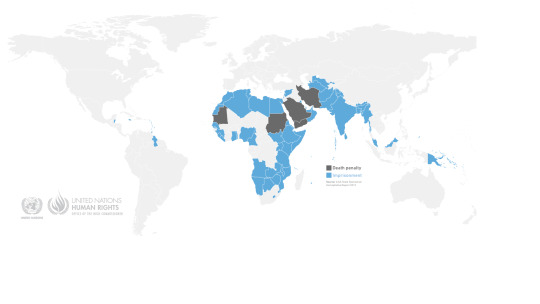#nondysphoic
Note
Hi ho! If it's okay I have a few questions and if you don't feel comfortable answering them, that's perfectly fine :) I've read that you're nondysphoric but you have gone through medical transitioning, so what was your motivation to transition? And I've seen in some places that you have to be diagnosed with gender dysphoria to begin HRT, you said you're not dysphoric, so did you get your T with informed consent or was it prescribed? I hope these aren't like, weird? I'm just trying to learn :)
People just want to live authentically, that’s what “motivates” them- not just trans persons, ALL persons in ALL aspects of life. Simple.
You mention dysphoria. Dysphoria is a non congenital mental health condition that may manifest in some trans persons, NOT ALL. Cis persons may also experience dysphoria and those who have dysphoria at some point may not experience it lifelong. Per diagnostic criteria found in the Diagnostic and Statistical Manual, Fifth Edition, a dysphoria diagnosis requires 6+ consecutive months of pathological and “clinically significant distress or impairment in social, school/occupational, or other important areas of functioning” in conjunction with the satiation of AT LEAST two other diagnostic criteria.
If you want to learn, you should know for starters that basic healthcare is expensive, medication and doctors appointments don’t come cheap. Specialty care, things like therapy, that stuff is even more expensive and many insurance companies refuse to cover such costs. Trans exclusion policies are a very common problem in the insurance realm- simply put, trans exclusion polices mean you can be excluded from your insurance policy if you are deemed trans. People’s entire insurance policies have been cancelled as a result of dysphoria diagnoses, which insurers use as “proof” of trans status.
Because only a handful of jurisdictions require trans-inclusive anti-discrimination policies, blatant discrimination of trans people is legal in MOST states, provinces, oblasts, townships, and locales. Where trans people aren’t protected, discriminatory practices like trans exclusion policies in the insurance realm, forced psychiatric hospitalization, forced sterilization, and conversion therapy flourish. In my homeland, for example, if I wanted hormones, I would have to be hospitalized in a psychiatric institution for an indefinite period of time with no guarantee of treatment in the end. In the place where my birth certificate was issued, sterilization is mandated for document changes and to get sterilized, I need to pay for that plus the treatment required to procure the necessary diagnoses.
Please know that, per UN stats, approximately 70 something nations criminalize LGBTQ behavior. Approximately a dozen of those aforementioned nations actually have the death penalty for LGBTQ persons- dysphoria diagnoses are just a fast pass there…

Because of aforementioned targeting, amongst other reasons, the DSM5, ICD, WPATH SOC7, APA, CPA, WHO, NHS, WMA, HRC, GLAAD, National Center for Trans Equality, Lambda Legal, Rainbow Health Ontario, Healthlink BC, Stonewall UK, Planned Parenthood, Mental Health Foundation of New Zealand, National LGBT Health Education Center, Mayo Clinic, American Counseling Association, and ALL other major medical associations and trans advocacy agencies very clearly articulate and affirm the fact that dysphoria is not required!!!
If dysphoria, isn’t required, you ask, how to people get treatment? In North America, you have 2 options:
The informed consent approach: Find a provider/surgeon who operates via informed consent, proceed to provider/surgeon, consent to hormones/surgery, schedule your appointment, receive your hormone prescription/surgery.
The gatekeeper approach: Find a trans-friendly therapist, get a diagnosis of “gender dysphoria,” have them write a letter affirming your mentally stability, send that letter to a provider/surgeon, schedule your appointment, receive your hormone prescription/surgery.
Regardless of whatever path you take, both options result in a hormone prescription that needs to be filled at a pharmacy. Informed consent or therapy, hormones will be prescribed in the end and you’ll need to take that prescription to a pharmacy to pick up your hormones. Whatever path works for the individual is best for them, you know? The professional consensus is that healthcare is individualized to the individual, not a one size fits all approach. With trans folks, no two experiences are the same. Everyone conceptualizes their existence differently and, at the end of the day, diversity is the spice of life.
Hope that clarifies. Best of luck to you in the learning process.
#top surgery#testosterone#hormones#hrt#hormone replacement therapy#informed consent#therapy#gender dysphoria#dysphoria#nondysphoic#non dysphoric#trans#transmasc#transmasculine#nonbinary#insurance#trans exclusion policies#psychiatric hospitalization#sterilization#discrimination#transphobia#tea-of-truth
9 notes
·
View notes